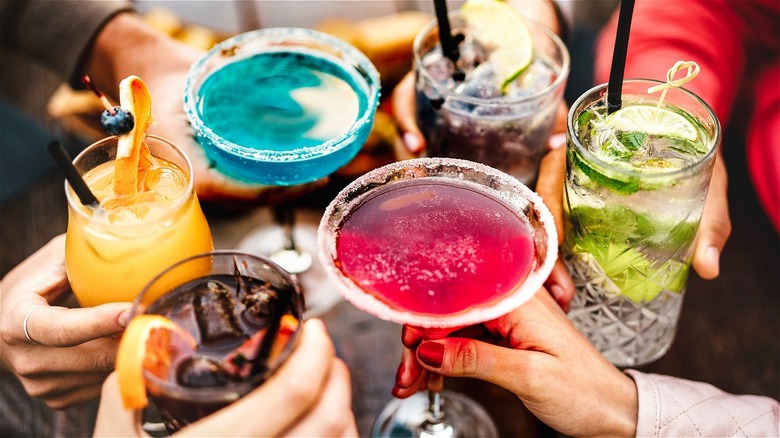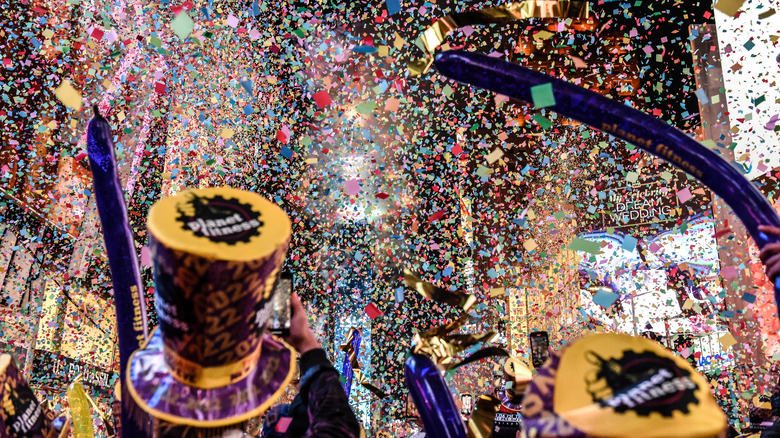You Probably Won't See Alcohol On The New Years Eve CNN Broadcast This Year
It's hardly a surprise that many adults around the world ring in the New Year with an alcoholic beverage in hand. Among the top consumed beverages of the night are champagne, tequila, and vodka, in that order, increasing the possibility of blacking out when compared to simply drinking beer (per American Addiction Centers). Of those who lose memory of the night, 27.3% are men and 16.7% are women. Additionally, men tend to down just over five drinks on New Year's Eve, while women enjoy a bit more than three and a half.
According to GOBankingRanks, local liquor stores receive the most business of the year on New Year's Eve, with sales increasing by 159%. The number of about 46 transactions skyrockets to more than 200 transactions as individuals prepare for their New Year's Eve parties. So, if this holiday is practically known for its large amount of alcohol, why is CNN attempting to cut down on-air drinking during its NYE broadcast?
CNN's CEO says drinking destroys credibility
Both on screen and off, CNN employees will be prohibited from drinking alcoholic beverages during its New Year's Eve broadcast in Times Square (per Variety). These rules, which have just been implemented this year, were put in place before the first NYE celebration with Chris Licht serving as the company's chairman. In a conversation with numerous employees, Licht revealed his belief that, "on-camera drinking eroded the credibility of CNN personnel and damaged the 'respectability' they may enjoy among viewers." The only two people who will be permitted to drink during the broadcast are the program's hosts, Anderson Cooper and Andy Cohen.
Past years of CNN's NYE broadcast have notably included a fair share of indulgence. One such recent moment attributed to over-celebrating was when Cohen went on a tirade against outgoing NYC Mayor Bill de Blasio. Another came when anchor Don Lemon also had his own rant (per Twitter).
Although this might be disappointing for many CNN staffers, ringing in the New Year without alcohol isn't at all unheard of. According to American Addiction Centers, one in four Americans stayed sober for New Year's Eve in 2020. At least half of the residents in Nebraska and New Hampshire remained alcohol free, but on the other hand, Idaho and Michigan had the largest percentage of drinkers — so not everyone may be taking the CNN approach.

